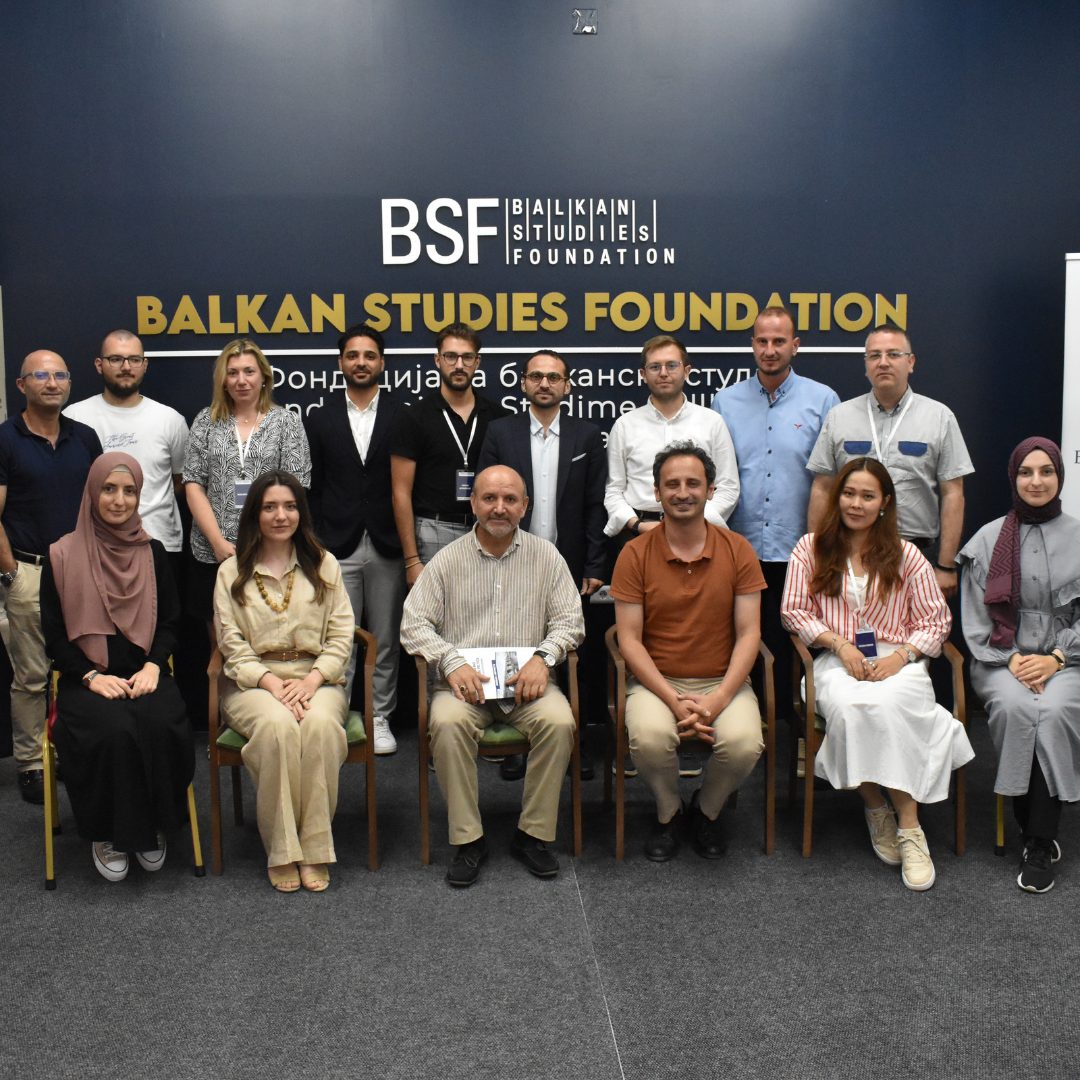
The opening ceremony of the summer school, held on July 15 at the premises of South East European University, began with remarks from the director of BSF, Dr. Sevba Abdula, and the director of CPESR, Assist. Prof. Dr. Bujamin Bela. The keynote speaker, Minister for European Affairs Mr. Orhan Murtezani, emphasized the impact of global politics on the Balkan region. Following this, Prof. Dr. Admir Mulaosmanovic delivered a lecture, and participants visited the old bazaar of Skopje with Dr. Besnik Emini.
On the second day, Prof. Dr. Admir Mulaosmanovic delivered two lectures focused on the impact of global political shifts on the Western Balkans, the influence of major powers in the region, and the challenges faced by Balkan states in maintaining stability and growth amidst geopolitical tensions.
On the third day, Prof. Dr. Rizvan Sulejmani delivered two lectures that delved into the internal challenges and risks persisting in the Balkans post-dissolution of the bipolar world order. He explored the influence of major global powers on the Balkan region, highlighting geopolitical dynamics and their implications for regional stability. Afterwards, participants visited Matka Canyon.
On the fourth day, Prof. Dr. Bekim Nuhija delivered two lectures analyzing the geopolitical positions of the Balkan countries and delving into the complexities of international law, specifically focusing on how major powers within the Security Council shape the enforcement of international law and impact global security dynamics. Prof. Dr. Mehmet Bulut delivered the closing keynote speech titled “The Challenges in the World and the Future of Balkan Economies,” providing an overview of global economic trends and their impact on Balkan economies, and offering valuable insights on how these countries can achieve sustainable growth and stability.
On the fifth day, participants visited the Painted Mosque in Tetovo and explored the natural, historical, and cultural aspects of the city of Ohrid.
In addition to lectures, the summer school program included workshops where participants presented their research papers related to Balkan and global politics. The papers presented are as follows:
Workshop 01: EU Policies and Balkans
Moderator: Semran Murtezani
》The Problems of Balkan Countries’ Accession to the European Union – Aizhan Aitbaeva (Kyrgyzstan)
》Regional Cooperation and Trade Liberalization in South Eastern Europe – Blerim Morina (Kosovo)
Workshop 02: Balkans Stability and Relations
Moderator: Semran Murtezani
》Unravelling Instability: Identity Politics and Third-Actors’ Influence in the Western Balkans – Elira Luli (Albania)
》Unraveling the Knot: Exploring the Role of International Power Politics in the Serbo-Albanian Rivalry Over Kosovo – Georgios Antonopoulos (Greece)
Workshop 03: Great Powers and Balkans
Moderator: Semran Murtezani
》China’s Belt and Road Initiative – Arta Haxhixhemajli (Kosovo)
》How Does Russian Influence Impact the Western Balkans’ Security? – Harun Nuhanović (Bosnia and Herzegovina)
》The Balkans as a test for the Militarization of Türkiye`s foreign policy Hypothesis – Dr. Marian Karagyozov (Bulgaria)
Workshop 04: Identity, History and Balkans
Moderator: Semran Murtezani
》Navigating the Crossroads: Constitutional Reform and the Rule of Law in the Balkans on the Path to EU Integration – Lorenca Bejko (Albania)
》Austria-Hungary’s Annexation of Bosnia and Herzegovina in Humor Magazines – Hakan Şendilmen (Türkiye)
》The “Neutrality” of Austria during the Ottoman-Russian War of 1877-1878 through Greek-language Newspapers of the Ottoman State – Maria Ntisli (Greece)
》The role of foreign policy in soft power politics: a case study of Türkiye’s Yunus Emre Institute Language Policies in Bosnia and Herzegovina – Yunus Dilber (Türkiye)